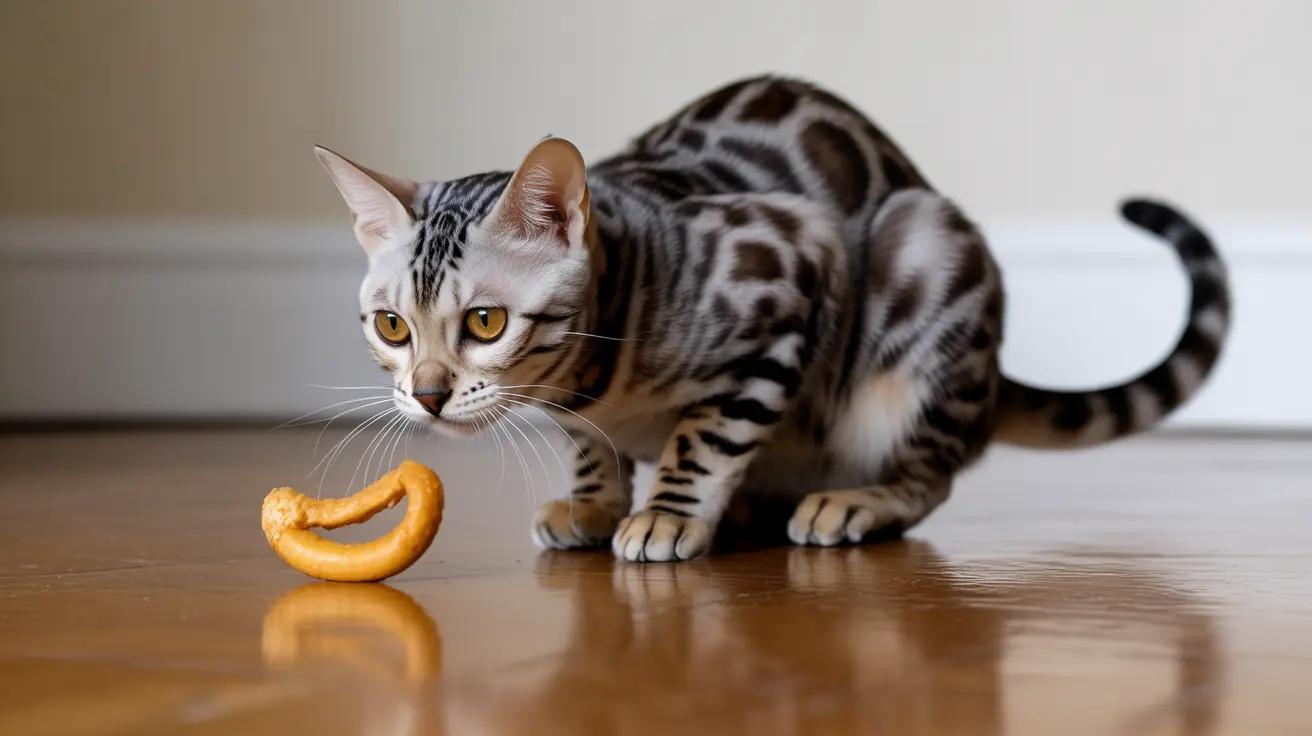Many cat owners have caught their feline friends showing interest in Cheetos, those bright orange, cheesy snacks we humans love so much. But just because your cat seems curious about these crunchy treats doesn't mean they're safe for consumption. Let's explore the important facts about cats and Cheetos, and why these popular snacks should stay out of your pet's food bowl.
Understanding the relationship between cats and human snacks like Cheetos is crucial for responsible pet ownership. While a tiny nibble might not cause immediate harm, there are several compelling reasons why Cheetos should never become part of your cat's diet or treat rotation.
The Dangers of Feeding Cheetos to Cats
Cheetos contain several ingredients that can be harmful to your feline companion. The high levels of salt, artificial flavors, and preservatives make them particularly unsuitable for cats. Even the basic cheese powder coating can cause digestive issues in most adult cats, who are typically lactose intolerant.
The main concerning ingredients include:
- Excessive sodium content
- Artificial flavors and colors
- Unhealthy fats
- Processed cheese powder
- Chemical preservatives
Understanding Your Cat's Nutritional Needs
Cats are obligate carnivores, which means their bodies are designed to process and utilize nutrients from animal-based proteins. Their digestive systems aren't equipped to handle processed human snacks like Cheetos. A cat's ideal diet should consist of:
- High-quality animal protein
- Moderate amounts of fat
- Minimal carbohydrates
- Essential vitamins and minerals from appropriate sources
Potential Health Risks
Feeding Cheetos to your cat can lead to various health issues, both immediate and long-term. Short-term effects might include:
- Digestive upset and vomiting
- Diarrhea
- Dehydration from excess salt
- Lethargy
Long-term consumption could result in:
- Obesity
- Diabetes
- Kidney problems
- Heart disease
- Chronic digestive issues
Safe Alternatives to Cheetos
Instead of sharing Cheetos with your cat, consider these healthy alternatives:
- Commercial cat treats formulated for feline nutrition
- Small pieces of cooked, plain chicken or turkey
- Freeze-dried meat treats specifically made for cats
- Veterinarian-approved dental treats
What to Do If Your Cat Eats Cheetos
If your cat manages to sneak a Cheeto, don't panic. Monitor them for any signs of distress. Contact your veterinarian if you notice:
- Persistent vomiting
- Diarrhea
- Unusual lethargy
- Signs of dehydration
- Loss of appetite
Frequently Asked Questions
Can cats safely eat Cheetos or lick the cheese dust?
No, cats should not eat Cheetos or lick the cheese dust. While a tiny amount might not cause immediate harm, the artificial ingredients and high sodium content make them unsafe for cats.
What health risks do Cheetos pose to cats if ingested?
Cheetos can cause digestive upset, dehydration, and potential long-term health issues like obesity and kidney problems. The high salt content and artificial additives are particularly concerning.
Why are salty and spicy Cheetos particularly bad for cats?
Cats are sensitive to salt and spices. The high sodium content can lead to dehydration and kidney stress, while spicy ingredients can cause severe digestive distress and discomfort.
What should I do if my cat eats a significant amount of Cheetos?
Monitor your cat closely for signs of distress. If they show symptoms like vomiting, diarrhea, or lethargy, contact your veterinarian immediately.
What are healthier treat alternatives for cats instead of Cheetos?
Choose cat-specific treats, small pieces of cooked plain meat, or veterinarian-approved dental treats. These options are safer and provide appropriate nutrition for your feline friend.
Conclusion
While Cheetos might be a beloved snack for humans, they have no place in your cat's diet. Protect your feline friend's health by keeping these and other processed human snacks out of reach, and stick to pet-appropriate treats instead. Your cat's long-term health and well-being depend on making informed dietary choices.






